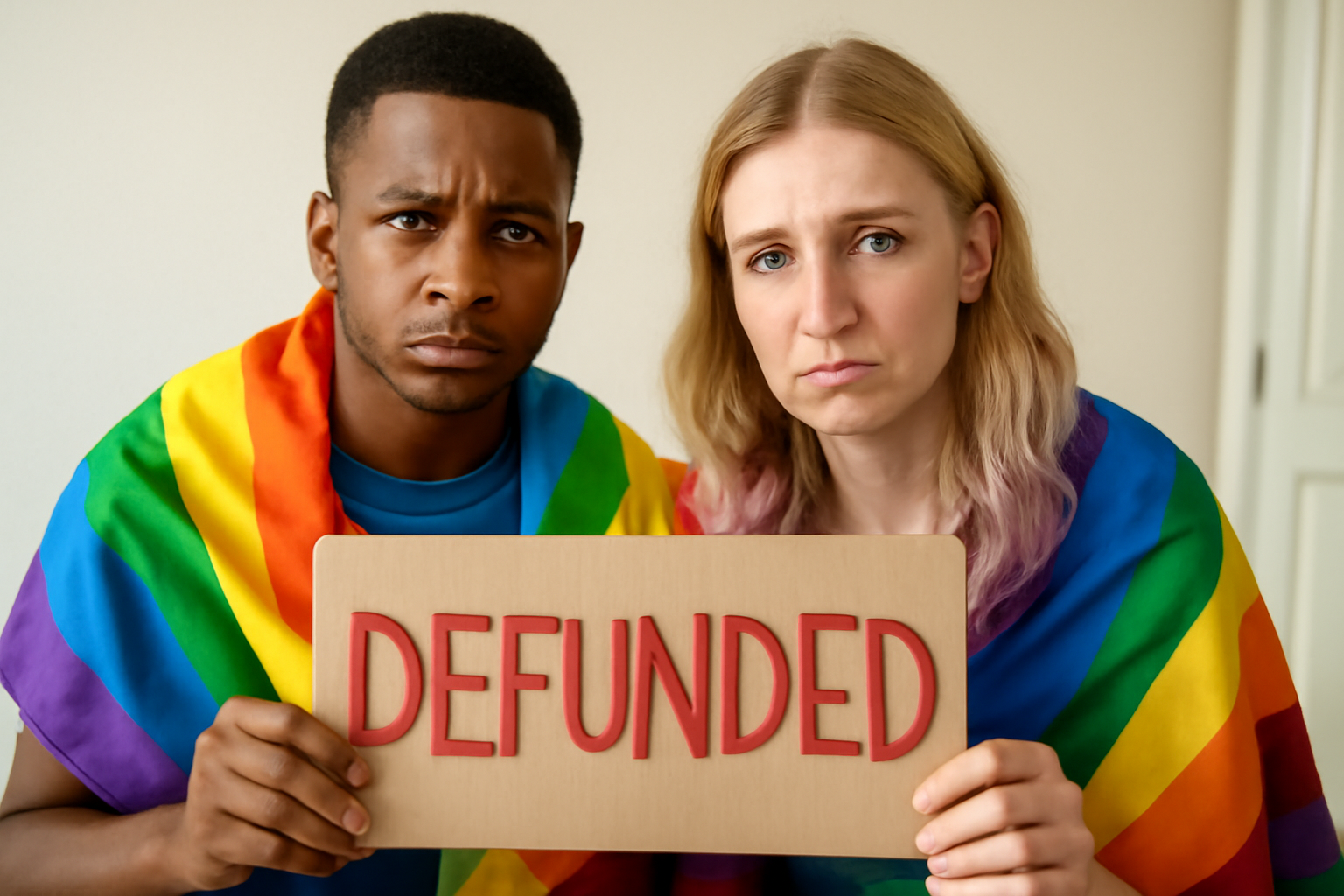
Defunding Support: The Global Impact on LGBTQ+ Communities
Recently, the director of an LGBTQ+ crisis center in Uganda found themselves helpless as their resources dwindled following a halt in U.S. aid. Without alternative funding, they had no choice but to turn away individuals desperately needing protection from severe violence. In Peru, a shelter for transgender women providing essential services such as food, medical care, and legal support closed abruptly, leaving its residents stranded. Similarly, in Côte d'Ivoire, a crucial HIV prevention initiative ceased operations, putting thousands at risk. These stories emerged from a global survey assessing the repercussions of the U.S. administration's decision to freeze foreign aid.
The action was a consequence of an executive order aimed at reassessing U.S. foreign aid to align with national interests, claiming that existing aid contradicted American values. However, this policy decision overlooks the values of compassion and support, jeopardizing the lives of marginalized communities worldwide. The cessation of aid has not secured American interests; instead, it has endangered vulnerable populations internationally.
Historically, the United States has played a pivotal role in supporting LGBTQ+ organizations around the globe, filling the gaps left by governments that neglect the rights of LGBTQ+ citizens. Yet, with one executive decision, this vital support vanished, leading to catastrophic outcomes.
According to reports, the freeze could result in a $105 million reduction in international LGBTQ+ support, a quarter of the global government funding for these causes. The impact is immediate and severe: a majority of surveyed organizations report heightened risks to life, health, and safety due to the aid freeze. Many have been forced to shut down programs or lay off staff, and others are on the brink of closure.
The effects are particularly severe in regions where LGBTQ+ individuals already face criminalization and violence. Shelters for refugees and survivors of violence have closed in several countries. In Ukraine, the lack of safe spaces has increased homelessness and violence against LGBTQ+ individuals. In Sudan, activists providing emergency assistance to those fleeing persecution are now powerless to help. In Colombia, the closure of programs offering economic opportunities to transgender women has forced many into perilous situations to survive.
The aid freeze was justified as a temporary review of spending priorities, but for those on the ground, even a short-term funding gap can be disastrous. Although the freeze was initially labeled as temporary, organizations have begun receiving notices of program terminations. This indicates a broader intention to roll back human rights commitments, with authoritarian regimes stepping in to exploit the void left by U.S. withdrawal.
However, as the U.S. government withdraws support, other global actors must rise to the occasion. Nations that advocate for LGBTQ+ rights need to act swiftly to bridge the funding gap. Additionally, private donors, including corporations that have profited from inclusive marketing, must also contribute.
For years, LGBTQ+ activists have navigated challenging conditions with minimal resources, demonstrating resilience and determination. Yet, resilience alone is unsustainable as a funding model, and these communities deserve much better. Without intervention, decades of progress risk unraveling within months, potentially costing many lives.
The time for action is now. This challenge transcends political differences; it is a moral imperative. The partners surveyed are running out of options. The critical question remains: will the world stand in solidarity, or will it turn away, leaving these communities to endure further hardship?
Matthew Beard, the executive director of All Out, emphasizes the need for continued support for LGBTQ+ communities. All Out is an international nonprofit working towards a world where no one has to sacrifice their family, freedom, safety, or dignity for being who they are. Matthew's extensive background includes roles at Action Aid and Amnesty International, where he championed human rights and raised awareness for marginalized groups.
Related Posts
Trump Inaugurated as 47th President Amid Concerns for LGBTQ+ Community
Donald Trump has been sworn in as President once again, marking his second term as America's 47th leader. This significant event in U.S. politics promises profound impacts, especially concerning LGBTQ+ rights. Taking office: promises and challenges Amidst a harsh winter storm, Trump took his oath indoors at U.S. Capitol on January 20. Alongside him, Vice-President JD Vance also stepped up, both [...]
Daniel Craig's "Queer" Overlooked by BAFTA: A Surprising Omission
Daniel Craig's film, Queer, snubbed by BAFTAs despite rave reviews In a surprising twist, Daniel Craig's newest film, *Queer*, failed completely on BAFTA's nomination list this year. It's a head-scratcher, considering how critics have sung its praises and Craig delivered such a standout performance. Yet, not a single nod from BAFTA. Go figure. fans and critics baffled by BAFTA snub The exclusio [...]
Generations of LGBTQ+ Athletes: From Past Challenges to Modern Triumphs
In a captivating display that brought together voices across generations, two gay athletes from different times came together on a TV show, sharing their journeys and thoughts on LGBTQ+ representation in sports. This insightful program shed light on how inclusivity and acceptance in athletics have evolved over time. Connecting past and present: The stories behind Andrew Purchas and Davis Atkin L [...]